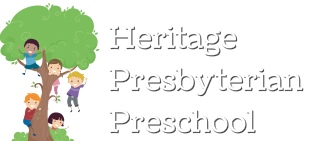Behavioral Expectations |
An age-appropriate, interesting, and calm classroom environment will minimize behavior problems. Children will be treated with respect, and they will be expected to treat one another in the same manner. This will nurture positive self-esteem, which is important to the development of self-control and autonomy.
When behavior problems (i.e. behaviors that are disruptive, destructive, and/or harmful to self, others, and/or the environment) do occur, the following techniques will be utilized by all teachers/persons on the premises: If a child’s behavior is just beginning to become disruptive, he or she will be redirected. The child will be reminded of the expected behavior. He or she will be given the option of engaging in another activity or staying at the current activity and behaving appropriately. The child will be encouraged to use verbal skills to express feelings and/or resolve disagreements with peers. The teacher may assist if necessary. If a child continues to have difficulties or if behavior is severe, the child may lose the privilege of playing in a particular area. He or she will be required to choose another activity. If a child continues having difficulties, he or she may be asked to sit down for a few moments until he or she feels ready to play without hurting others. The teacher will talk with the child to explain the limits and see how she can help the child. A child’s parents will be notified if the problem behavior occurs frequently and/or if severe, harmful behavior occurs. The most effective methods for the teacher to help the child will be discussed with the parents. In extreme circumstances, if the behavior continues after repeated attempts at intervention by teachers, the Director, and parents, and in compliance with the Americans with Disabilities Act, the child may be dismissed from the program. If a child becomes extremely emotionally upset and cannot be calmed within a reasonable amount of time, the child’s parents will be contacted. |

|
